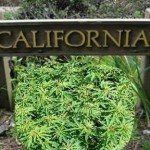The possible shutdown of a medical marijuana dispensary puts Oakland, Calif., in a “twilight zone” where it has no rights, a city lawyer told a federal judge.
 While medical marijuana is legal in California, and voters have approved the recreational use of marijuana by adults in Washington and Colorado, it is still illegal under federal law.
While medical marijuana is legal in California, and voters have approved the recreational use of marijuana by adults in Washington and Colorado, it is still illegal under federal law.
The U.S. government initiated forfeiture proceedings against Harborside Health Center’s Oakland and San Jose locations in July, claiming the clubs sell marijuana in violation of the Controlled Substances Act (CSA).
Oakland reacted by suing the government for abandoning its alleged promises not to interfere with a state’s plan to regulate medical marijuana shops.
Though the U.S. government argued that Oakland lacks standing, the city argued otherwise by virtue of the “perfect storm” created by its interests in protecting public health and safety.
At a hearing on the government’s motion to dismiss, Morrison & Foerster attorney Cedric Chao said that the government’s standing argument puts the city in a “twilight zone. You can’t be inside. You can’t be outside. You have no remedy.”
The Administrative Procedures Act governs how federal administrative agencies can propose and establish regulations and establish processes for review of those decisions in federal court.
Since Oakland does not have a remedy outside the APA, it must sue under the APA because “that is what the APA is for, when you have no other remedy,” Chao said.
Chao claimed that the “government argument is that you have to file a claim within the forfeiture structure but if you do file a claim you will be thrown out because you do not fit the definition to have standing. And Oakland is not an owner so it does not have standing in that action.”
He said the government believes that it does not matter that Oakland has no remedy. “It matters that somebody has a remedy, which sounds goofy,” Chao said. “There is something wrong with that argument.”
Prosecutors have no authority or justification to support their contention that, “if someone else has a remedy,, then you as a plaintiff have no remedy,” he added.
Oakland is “trying to protect public health” and safety, and had no interest in the actual physical properties, Chao said.
Seizing and closing the dispensary in Oakland will harm “tens of thousands of patients who are now accustomed to medical cannabis,” Chao added. “Their need will not go away when Harborside is shuttered. They will go out onto the streets.”
Oakland is “uniquely unprepared to deal with the increase in crime,” the lawyer said, noting that its police force is understaffed.
Prosecutors are “asking the court to take an unprecedented and extreme view of the APA,” Chao added. “They want the court to hold that a party, in this case a city, must stand down. You have grievances? You are going to be harmed? Too bad. You have no remedy. And that is not what the APA says.”
Justice Department attorney Kathryn Wyer responded that Oakland was “asking for the exact same relief” as could be requested in the forfeiture action. She said the remedy was available to challenge the forfeiture proceedings within the framework of those proceedings.
Granting standing to Oakland gives anyone who does not have a property interest a right to file a separate lawsuit, Wyer said.
“That could not possibly be Congress’ intent,” she added.
Wyer also claimed that, under Oakland’s theory to establish standing, the wife of someone accused of murder “could file a lawsuit to challenge the government’s decision to bring murder charges in an independent lawsuit claiming self-defense. I haven’t heard anything the plaintiff has said that would limit her ability to do that.”
Chao responded that such a plaintiff would have multiple hurdles to overcome, including establishing credential standing.
Wyer also claimed that Oakland’s proposed defenses are all related to the forfeiture action and that “nothing that the city of Oakland could gain through this lawsuit would affect anything if Harborside decided to pick up and move to Colorado or somewhere else.”
“The city is only hoping to halt forfeiture,” she said. “There are no other claims. One reason is maybe that it knows it can’t succeed under constitutional claims, like if it challenged the CSA. …This case is not about constitutionality of the CSA. All the city is trying to do is stop a forfeiture that is already under way in a different case. APA is not the proper mechanism for raising that challenge. The forfeiture scheme provides the only available remedy.”
Chao insisted conversely that Oakland has “nowhere else to go except under the APA.”
“The APA was designed for our circumstance, where you have no other remedy,” he said.
“Congress could never have intended for that 400,000 citizens of Oakland would have no remedy,” he added. “I can’t believe that.”
While Oakland is not asserting a medical necessity defense, he asked how the government can get around its own worldwide patent application for synthetic cannabis.
The Drug Enforcement Administration currently classifies Marijuana as a Schedule I Drug, meaning it has no recognized medical value.
Judge James asked if she should stay the forfeiture case if she finds that Oakland’s case can proceed.
While Chao said yes, Wyer said the “question highlights why these questions can’t go forward under the APA because it’s the exact same remedy as in the forfeiture cases.”
“That fact should not stop the court from ruling in the government’s favor because our arguments are based on facts as pled in their complaint,” Wyer said. “As a matter of law there is no factual dispute on which Oakland can proceed with their claims.”
Article republished from Courthouse News









